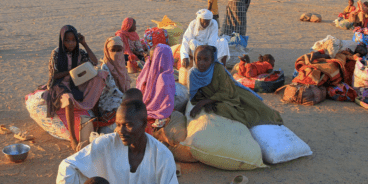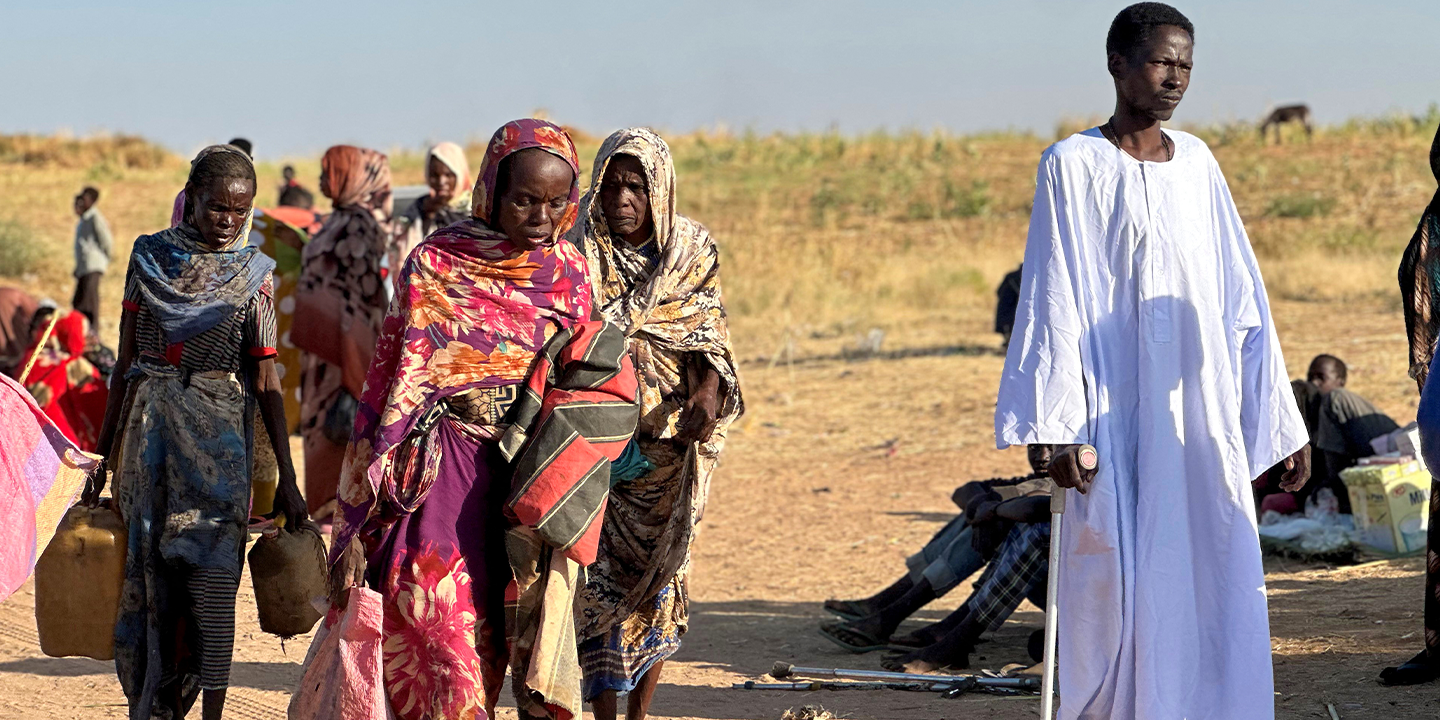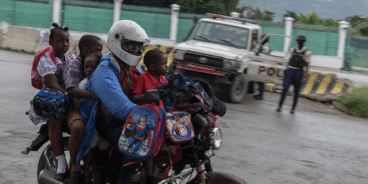

Atrocity Alert No. 457: Sudan, Israel and the Occupied Palestinian Territory and Democratic Republic of the Congo
Atrocity Alert is a weekly publication by the Global Centre for the Responsibility to Protect highlighting situations where populations are at risk of, or are enduring, mass atrocity crimes.
WIDESPREAD ATROCITIES DEVASTATE EL FASHER AFTER RSF TAKEOVER
Since 26 October, when the paramilitary Rapid Support Forces (RSF) took control of El Fasher in North Darfur, Sudan, civilians in and around the city have endured widespread and systematic atrocity crimes. Credible reports indicate that the RSF has killed, raped, abducted and tortured civilians, frequently targeting them on the basis of ethnic identity. Satellite imagery has documented mass killings, door-to-door executions and the deliberate destruction of hospitals, homes and shelters. Communication networks are down, but growing numbers of videos, corroborating reports and survivor testimonies suggest that mass killings are occurring on a significant scale, with bodies scattered across El Fasher and along the roads.
According to the Sudan Doctors Network, the RSF killed at least 1,500 people between 27 and 29 October as they attempted to flee the besieged city. Of the roughly 260,000 civilians who were trapped in El Fasher before its capture, only a few thousand have managed to reach Tawila, a safer area to the west of El Fasher. The whereabouts of tens of thousands of others remain unknown.
On 28 October more than 460 patients and their companions were reportedly shot and killed inside the Saudi Maternity Hospital, the only partially functioning medical facility in El Fasher. In his statement to the UN Security Council (UNSC) on 30 October, Under-Secretary-General for Humanitarian Affairs and Emergency Relief Coordinator (OCHA) Tom Fletcher described the attack as “the latest of countless attacks on health care and yet another example of the depravity with which this war has been fought.” In a press statement adopted during the meeting, the UNSC condemned “reported atrocities being perpetrated by the RSF against the civilian population, including summary executions and arbitrary detentions, and expressed grave concern at the heightened risk of large-scale atrocities, including ethnically motivated atrocities.”
Meanwhile, fighting has intensified in the Kordofan regions. Following the RSF’s capture of the strategic town of Bara in North Kordofan in late October, the Office of the UN High Commissioner for Human Rights received reports that on or around 26 October an estimated 50 civilians were killed – some during active hostilities and others reportedly executed on suspicion of supporting the Sudanese Armed Forces. The reports also include the alleged summary execution of five Red Crescent volunteers. The RSF claims to have captured the town of Umm Dam Haj Ahmed, northeast of the capital of North Kordofan, El Obeid. On 4 November OCHA reported that at least 40 civilians were killed in El Obeid during an attack on a funeral gathering.
Urgent diplomatic action is essential to protect civilians and prevent further atrocities in El Fasher, Bara and beyond. The RSF must be compelled to immediately halt hostilities, guarantee safe passage for civilians and humanitarian workers and ensure full, unimpeded humanitarian access to all affected areas. The international community must unequivocally condemn deliberate attacks on civilians and exert concerted pressure on the RSF and its supporters to ensure that all civilians in, around or attempting to flee El Fasher are protected.
THREE WEEKS INTO CEASEFIRE, ISRAEL CONTINUES ATTACKS IN GAZA
Three weeks into the most recent ceasefire in Gaza, Israel continues to violate the sanctity of the agreement, killing over 200 Palestinians and wounding approximately 600 others. Sweeping airstrikes across the enclave killed over 100 Palestinians, including at least 35 children, on 28 October alone. UN High Commissioner for Human Rights Volker Türk denounced the attacks, stressing Israel’s accountability for any violations of “its continuing obligations under international humanitarian law.”
As with previous ceasefires since October 2023, most member states have failed to hold Israel accountable for its repeated violations, with many refraining entirely from denouncing these actions as blatant breaches of the agreed truce. This pattern is documented in the new report Gaza Genocide: a collective crime, presented on 28 October by Francesca Albanese, UN Special Rapporteur on the situation of human rights in Palestinian territories occupied since 1967. The report details the complicity of more than 60 states, including influential Western governments, in enabling and sustaining Israel’s long-standing oppression of the Palestinian people culminating in the ongoing genocide in Gaza. The report highlights the complicity of third states providing political, military or diplomatic cover for Israel’s atrocities, as well as those hiding behind a “simplistic rhetoric of ‘balance,’ framing the crisis purely as a humanitarian issue while amplifying the dehumanization of Palestinians to normalize Israel’s conduct. Piecemeal actions – such as isolated sanctions and words of condemnation – while continuing to support Israel’s genocidal campaign, not only revealed a feigned pursuit of resolute action, but also served to “effectively condone the Israeli state system and structures as a whole.”
Meanwhile, on 20 October the International Court of Justice delivered its Advisory Opinion on Israel’s obligations concerning the presence and activities of the UN and other international organizations operating in the Occupied Palestinian Territory, reaffirming Israel’s obligation as the occupying power to ensure access to essential services and facilitate humanitarian access. Despite this, Israel has repeatedly obstructed aid delivery to the Palestinian people and has only permitted a fraction of the agreed 600 daily trucks to enter Gaza. Furthermore, Israel’s new restrictive INGO registration process threatens to ban organizations that do not adhere to the vague regulations.
Israel must adhere to the ceasefire agreement in full, without pause. The international community must unequivocally denounce Israel’s ongoing violations of the ceasefire and press for a complete cessation of hostilities and full respect for the provision of humanitarian aid. States should match this rhetoric by ceasing to enable Israel’s genocide in Gaza and taking consistent action to hold perpetrators accountable.
UN AGENCY WARNS OF SPIKE IN SEXUAL VIOLENCE IN EASTERN DR CONGO
On 21 October, following a visit to the Democratic Republic of the Congo (DRC), the UN Population Fund (UNFPA) warned of a dramatic surge in sexual violence against women and girls. Conflict-related sexual violence has increased by more than 35 percent compared to last year. Reports indicate that sexual exploitation, abuse and coercion remain pervasive, especially in overcrowded displacement camps where protection and security measures are minimal. UNFPA’s Director of the Humanitarian Response Division, Shoko Arakaki, stated that “women and girls are being raped, exploited and abused in camps, in transit, and within their own communities.” Adolescent girls are among those most at risk, accounting for one-third of reported gender-based violence cases.
UNFPA has designated the DRC as an internal Level 3 emergency – their highest level of severity and humanitarian need. Access to lifesaving health services in the country are severely disrupted due to insecurity and funding shortages.
During her visit to Goma, the capital of North Kivu province, Arakaki witnessed firsthand the harsh realities facing women and girls amid the worsening security and humanitarian conditions. Since early 2025, the March 23 Movement (M23) armed group has intensified its offensive in North and South Kivu, seizing provincial capitals and perpetrating grave abuses against civilians. In its latest report, the UN Human Rights Council (HRC)-mandated Fact-Finding Mission documented systematic, widespread sexual violence by M23 members, primarily gang rape and sexual slavery. The Mission also found patterns of sexual violence, including rape and gang rape, perpetrated by government forces (FARDC) and allied militias.
As the FARDC has been redeployed to counter M23 advances, other armed groups – particularly the Allied Democratic Forces and the Cooperative for the Development of Congo (CODECO) – have exploited the resulting security vacuum. The UN peacekeeping operation (MONUSCO) has reported a resurgence of violence in Ituri, including deadly attacks on displacement sites. On 14 October MONUSCO repelled simultaneous CODECO attacks on displaced persons and farmers in Djugu, saving thousands of lives.
The international community should urgently increase funding for life-saving health and protection services, including medical treatment and psychosocial support for survivors of sexual and gender-based violence. All parties to the conflict must uphold their obligations under international law to protect civilians and civilian infrastructure and ensure unimpeded humanitarian access. Accountability must remain central, including through full operationalization and resourcing of the HRC-mandated Commission of Inquiry, whose mandate covers violations affecting women and children, sexual and gender-based violence and abuses against internally displaced persons. The DRC government must also strengthen protection for populations vulnerable to ongoing armed group attacks.
Related Content


Letter to UN Human Rights Council members on atrocity prevention priorities at the Council’s 61st session
